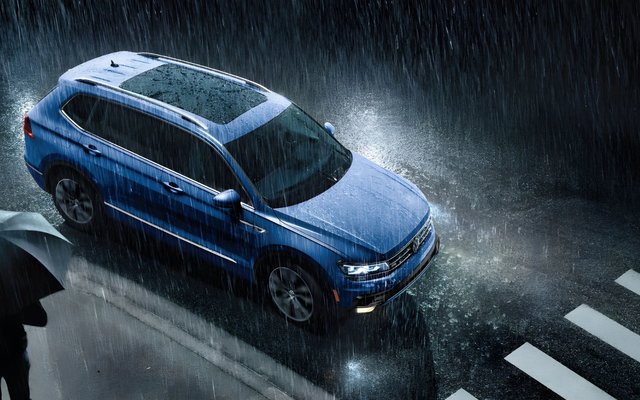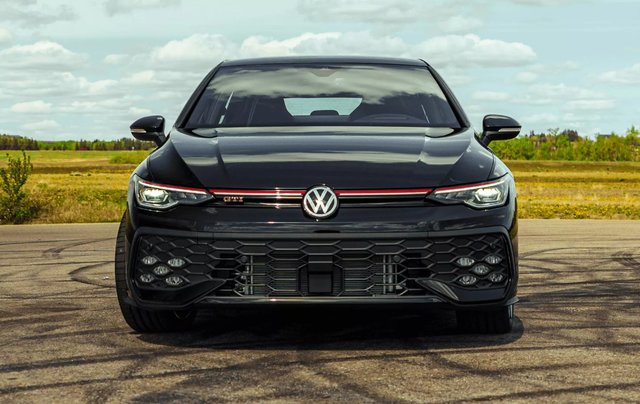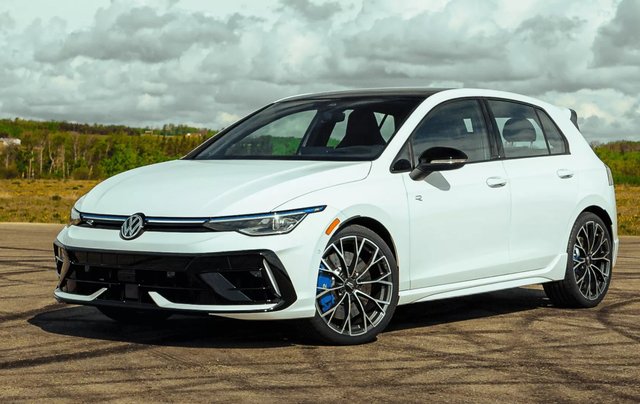Electric cars are showing up on roads in growing numbers. Drivers love their quiet performance, smooth acceleration, and zero-emission operation. But as more people make the switch, a common question comes up during the wet months: Can rain damage an EV? The answer is reassuring. Electric vehicles are engineered with weather protection in mind, so rain itself won't harm them. However, wet conditions still call for a bit of extra care to keep your EV performing at its best.
Can Rain Damage an Electric Vehicle?
One of the most persistent myths about EVs is that water and electricity are a dangerous mix. While that’s true for unprotected electrical systems, Volkswagen EVs are built to meet rigorous safety standards. The high-voltage battery pack, electric motor, and wiring are all housed in sealed, waterproof casings. Even the charging port is designed with weather seals and protective covers, ensuring safe operation in the rain.
That means every day wet weather, from light showers to steady downpours, is not a threat to your EV's electrical system. However, water can become a problem in extreme cases. Driving through deep standing water or flood conditions can damage components in any vehicle, whether electric or gasoline-powered. Avoiding water that rises above the bottom of your car's doors is one of the most vital steps you can take to prevent costly repairs.
Performance in Wet Conditions
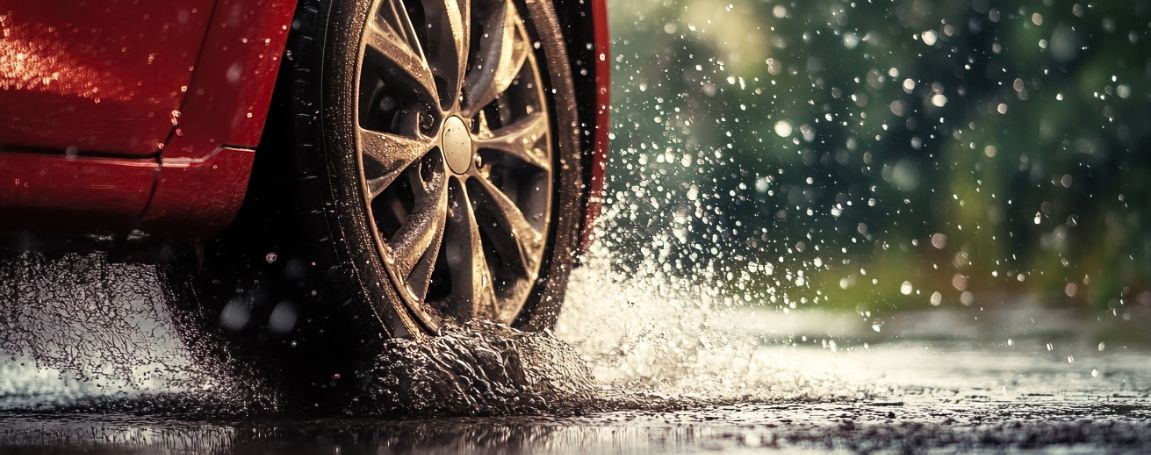
Now the electric vehicles actually offer a few natural advantages when it comes to driving in rainy weather. Thanks to the battery's placement along the vehicle floor, they have a low centre of gravity that helps them feel stable and grounded. This translates into confident handling on wet pavement, especially when paired with advanced traction control systems.
Models equipped with all-wheel drive gain even more capability in slippery conditions. Instant torque delivery from the electric motor also helps you get moving smoothly without wheel spin, even on slick roads.
Still, the basics of wet-weather driving apply. Increase your following distance, slow down slightly to give yourself more reaction time, and use gentle acceleration and braking to maintain traction. These habits keep you safer and more in control, no matter how advanced your EV’s systems may be.
Is It Safe to Charge in the Rain?
Many new EV owners wonder whether plugging in during a rainstorm is safe. With expert engineering, it absolutely is. Home charging stations and public chargers are weather-rated, insulated, and tested to operate in wet conditions. The connection between the cable and your car’s port is designed to be watertight.
That said, common-sense precautions still apply:
- Make sure the charging connector and cable are clean and free of dirt or debris.
- Avoid charging in areas where water is pooling or where the charging station is submerged.
- Inspect your home charging setup occasionally to ensure all components are in good condition.
By going through these simple steps, you can safely keep your EV charged and ready to go no matter the forecast.
Tips to Protect Your Volkswagen EV in the Rainy Season
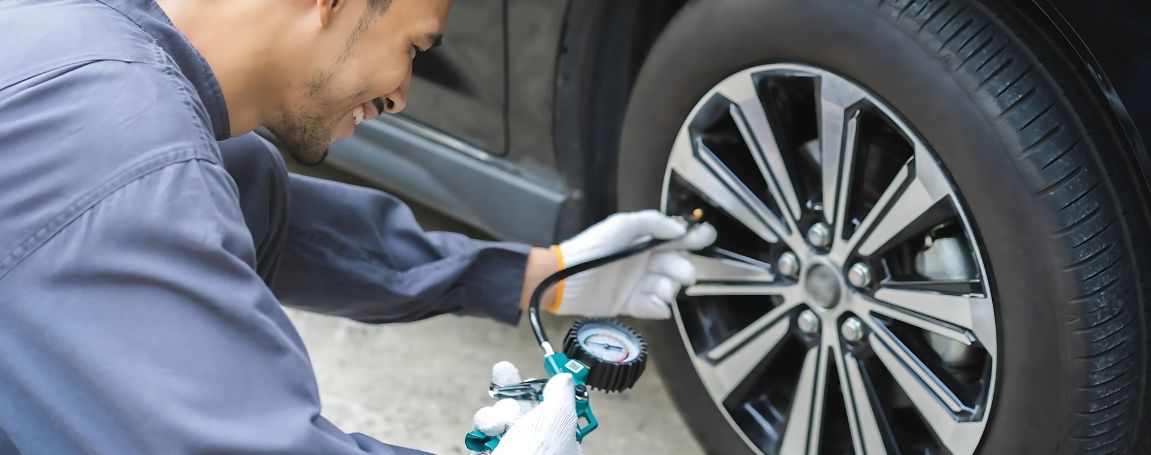
While rain alone isn’t harmful, these tips will help you avoid potential issues and extend your EV’s lifespan:
- Park Under Cover When Possible – Using a garage or carport limits your EV’s exposure to heavy rain and helps keep charging components dry.
- Check Tire Tread and Pressure Regularly – Proper tire condition is essential for wet-weather traction and slipery roads. Worn tires increase the risk of hydroplaning.
- Inspect Seals and Gaskets – Ensure the rubber seals around doors, trunk, and charging port are in good shape to prevent water from entering.
- Avoid Deep Puddles – Even though batteries are well-protected, splashing water into high-voltage areas or the cabin can cause problems.
- Keep the Undercarriage Clean – Mud and road grime can trap moisture. Washing the underside of your car after heavy rain helps prevent long-term corrosion.
- Plan Charging Stops in Advance – In unfamiliar areas, identify well-lit, sheltered charging locations to make rainy-day charging more convenient and safe.
These steps are simple but go a long way toward ensuring your EV stays in peak condition all year round.
Peace of Mind in Every Season
Rainy weather doesn’t have to be a source of stress for EV drivers. With strong waterproofing, advanced safety testing, and smart driving habits, your electric vehicle is more than capable of handling Ontario’s wettest months. The key is to stay aware of extreme conditions, avoid driving through floodwaters, and keep up with basic maintenance.
The Smart engineering is designed to inspire confidence no matter the weather. By pairing that quality with a bit of extra care during the rainy season, you'll enjoy smooth, quiet, and efficient driving for years to come.
Your Local EV Experts

If you want expert VW EV maintenance or advice on keeping your electric vehicle safe during the rainy season, visit Myers Hunt Club Volkswagen. As an official Volkswagen dealership in Gloucester offers factory-trained technicians, competitive financing, OEM parts and the best deals on all Volkswagen EV services. Let our experts help you protect your investment and enjoy worry-free driving, rain or shine.


